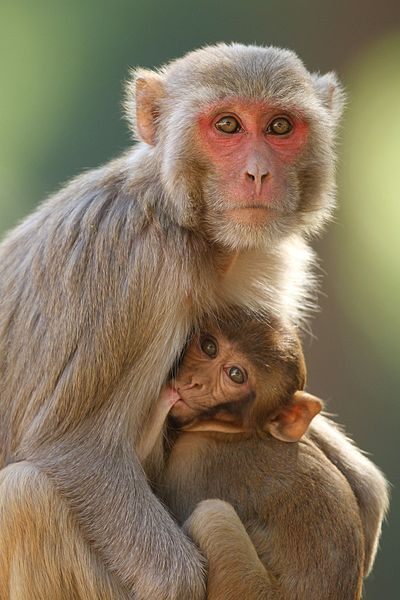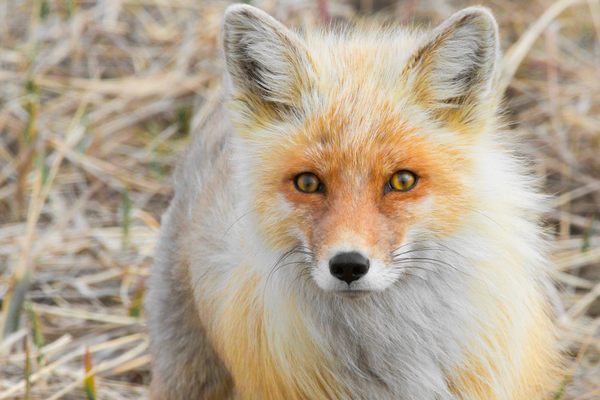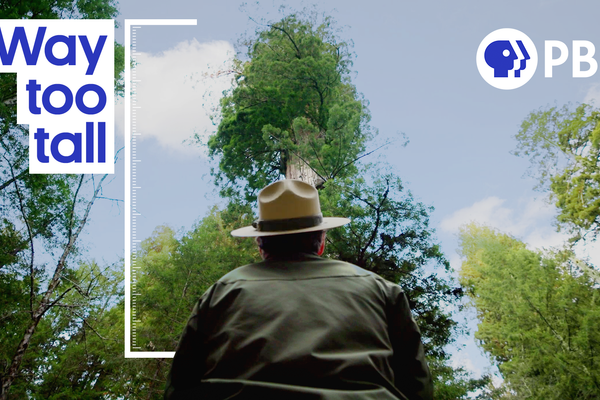You Probably Shouldn’t Be Worried About This Colony of Herpes-Infected Monkeys in Florida
Still, there’s a colony of herpes-infected monkeys in Florida.

Imagine picnicking in central Florida when, suddenly, you hear some leaves rattle, and, from the shade of the trees, the curious face of a rhesus macaque emerges. The macaques, which were introduced to Florida decades ago by a boat operator, have taken up residence in the state with determination, expanding rapidly because they lack natural predators.

But they are mostly benign, and this one seems pretty benign too. So, what should you do? Offer it food? Try to pet it? Or just ignore it?
You can probably guess the right answer, even if, for decades now, other humans have been guessing wrong, leading to 31 attacks from 1977-1984, according to an official report.
And while most of those injuries turned out to be minor, nowadays you might not be so lucky, as officials warn the public about a more dangerous threat: a strain of herpes carried by the rhesus macaques that is mostly harmless to them but can be deadly to humans.
No such fatal case has yet occurred, but the panic has encouraged the Florida Fish and Wildlife Conservation Commission (FWC) to declare the monkeys a public health threat, and recommend that humans avoid contact with them.
Which means that if you do see a monkey come upon your picnic, you’d be best served observing it from afar. Do you really want to die by way of monkey herpes? No. No, you do not.
What kind of herpes are we talking about? The particular strain of herpes carried by the rhesus macaque is called Macacine herpesvirus 1, and is comparable to the human strain of herpes that causes cold sores, according to Dr. Jim Wellehan, an assistant professor at the Department of Small Animal Clinical Sciences at the University of Florida.

And while most primates carry some kind of herpes, a strain of herpes that’s benign in one species can prove deadly in another. That’s because over millions of years of evolution, herpesviruses have diverged with their hosts, but not other species, meaning that while Macacine herpesvirus 1 might only give rhesus macaques a cold sore, a human is much, much more vulnerable, as over half of documented cases of human infection have ended in death.
Still, don’t blame the rhesus macaques. The only reason they are in Florida, in fact, turns out to be perfectly Floridian. Native to south and central Asia, six of the macaques were transported to the state in 1938 by an entrepreneur named Colonel Tooey (real first name) who put them on an island in Silver Springs State Park.
Tooey’s plan, such as it was, was for a type of amusement park, selling tourists tickets to his Jungle Cruise Ride, which promised to pass by the incredible “monkey island,” where he’d introduced the macaques. The plan, for a time, worked, but while an influx of tourists rushed in to see the monkeys in action, the animals themselves began their escape.
They first swam across the river, and rumors soon began to circulate about a wild pack of rhesus macaques roaming free. Meanwhile, some people claimed that they had been stars in a Tarzan movie (a rumor that continues to be spread). Others, that they were reproducing at a fast rate, and that there were now thousands and thousands of them in the area.

The truth was far less dramatic, but the reality is that, without natural predators, the rhesus macaques were here to stay, expanding in Central Florida, even reaching cities as far as the Gulf of Mexico. And for years, the FWC has considered many solutions, including extermination, relocation, and population control, but nothing, so far, has proven effective.
Plans of complete extermination, for example, were thwarted in the ’90s by animal rights protesters, and attempts at sterilization have proved impractical. More desperately, the state has even issued permits for catching and selling the monkeys, though this approach has also been criticized since most captured individuals end up in research facilities for life. (The FWC did not respond to a request for comment.)

While the thought of dying because a monkey gave you herpes is terrifying, the rhesus macaques might feel the same way about you. In fact, there are more recorded cases of humans infecting their pet monkeys with human herpesviruses than vice versa.
But as of now, the humans and monkeys remain in an uncomfortable stalemate. And while most human interactions with the monkeys continue to be benign, do yourself a favor and leave them alone if you see them out in the wild. Macaques’ first instinct is not to attack a primate several times its size, but they will if they feel cornered or threatened. And, as Wellehan explains, herpes can only be transmitted by close contact where fluids are exchanged.
Mostly, though, Wellehan says, the herpes-carrying monkeys are “a hell of a lot less scary than climate change.”
Update 11/22/2016: An earlier version of this article referred to strains of the virus as strands. We apologize for the mistake.



























Follow us on Twitter to get the latest on the world's hidden wonders.
Like us on Facebook to get the latest on the world's hidden wonders.
Follow us on Twitter Like us on Facebook